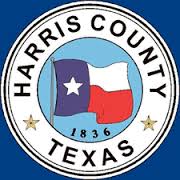A county’s gotta do what a county’s gotta do.
Harris County officials are using flood control regulations passed after Hurricane Harvey to delay the reopening of two chemical companies where fires erupted in recent weeks, killing one worker and sending large plumes of black smoke into the Houston area.
The Harris County Attorney’s office cited the post-Harvey rules on floodplain construction and stormwater drainage in its civil lawsuits against KMCO and Intercontinental Terminals Co., where cleanup is still ongoing after the fires.
“We don’t shy away from going after the biggest, baddest companies out there,” said Harris County Attorney Vince Ryan. “It sends a message to everyone.”
The county is digging through maps and available data to determine if both companies are in a floodplain. The new regulations put chemical facilities that are in a 500-year floodplain under tighter scrutiny.
The drainage rules restrict discharges of hazardous materials into the county’s stormwater system. If a company is found to have discharged hazardous materials, it can be cited by the county. Larger releases could lead to additional legal action.
The floodplain rules apply to more than facilities with fires and toxic releases and can force companies to meet new requirements when seeking to expand or change an existing facility, said Rock Owens, managing attorney for the Harris County Attorney’s environmental section.
The story doesn’t go into detail about what compliance issues there are and how long they may take to resolve. You may be thinking “why doesn’t the county file a lawsuit against these companies to force them to fix their problems?” The answer is that this used to be how things went, but your Texas legislature has taken steps to shackle counties and their enforcement efforts.
But in 2015, the state Legislature started taking away authority from the local governments. Lawmakers approved a bill capping the amount of money a local government could receive from civil penalties sought in environmental cases.
In 2017, another bill passed forcing local authorities to ask permission from the Texas attorney general before seeking penalties. If the attorney general’s office does not file its own suit in 90 days, the local government can go forward with a civil suit.
Lawmakers are currently considering two bills that would restrict local governments even more.
House Bill 3981, filed by state Rep. Jeff Leach, R-Plano, would give the attorney general the authority to settle lawsuits started by the county, without the approval of the county.
House bill 2826, filed by state Rep. Greg Bonnen, R-Friendswood and three others, would let the attorney general prohibit the county from hiring outside attorneys on cases.
“The concern isn’t that the local governments are intentionally causing any problems with these suits, just that a more efficient state-led effort may at times be more desirable,” said Justin Till, Bonnen’s chief of staff.
More desirable for the polluters, that’s for sure. Let’s be very clear, the main reason why bills like these get passed are specifically to muzzle Harris County’s enforcement efforts. (The city of Houston’s efforts were killed by the Supreme Court.) It’s a pollution-friendly Republican Legislature taking care of bad actors, aided and abetted by the business lobby. You know what I’m going to say next: Nothing will change until we change who we elect.


The business lobby is also attacking, via lawsuits, the right wing’s “First Ammendment Auditors” who like to live-stream business facilities from public right-of-way (re: News Now Houston and associated News Now organizations on YouTube and other platforms).